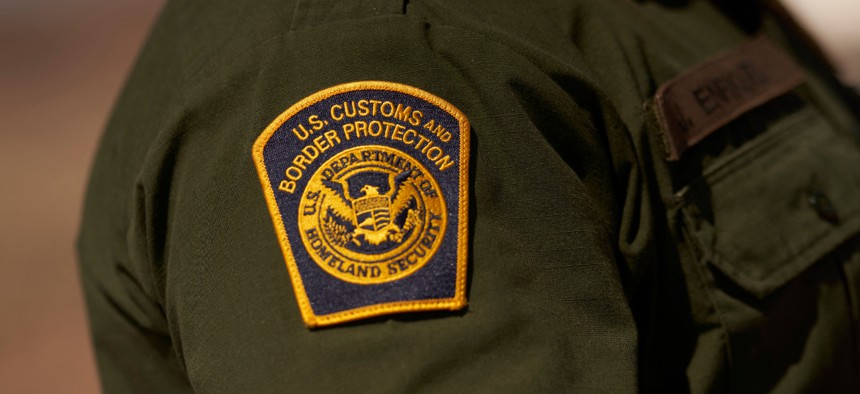
First responders covered by the bill include customs and border protection officers, among others. ALLISON DINNER/AFP via Getty Images
First Responder Retirement Bill Gets a Unanimous Senate Vote
The legislation allows first responders with disabilities to continue receiving federal retirement benefits in the same manner as though they had not been disabled.
The First Responder Fair RETIRE Act (H.R. 521) has passed the Senate unanimously, and its next stop is President Biden’s desk.
H.R. 521 allows first responders who are disabled due to a workplace injury and forced to seek other employment in the federal government to continue to pay into the accelerated retirement system and retire after they have served 20 years and reached age 50. The bill also allows first responders to get a refund of their previous accelerated contributions if they leave federal service before qualifying for their annuity.
Federal employees in first responder roles are part of an accelerated retirement program. They pay more towards their defined benefits every paycheck in exchange for early retirement.
Larry Cosme, national president of the Federal Law Enforcement Officers Association, lauded the passage of the bill. FLEOA is the nation’s largest nonpartisan, not-for-profit professional association, representing more than 31,000 federal law enforcement officers across 65 federal agencies.
“We are grateful that Members of Congress have recognized that addressing this injustice is of the utmost importance, as exemplified by today's vote to pass the bill by unanimous consent in the Senate,” Cosme said in a statement. “The bill also received unanimous approval in the House of Representatives, a true marker of its importance. It was FLEOA’s goal to see this bill passed into law this year, and we are extremely proud that goal has been achieved.”
First responders covered by the bill include police officers, customs and border protection officers, firefighters, air traffic controllers, nuclear materials couriers, members of the Capitol Police force, members of the Supreme Court police, employees of the Central Intelligence Agency that are performing intelligence activities abroad or have specialized security requirements, and diplomatic special security agents of the Department of State.
“Our members have dedicated themselves to a career spent protecting and defending this nation. They are our first line of defense against transnational criminals, drug traffickers, domestic and international terrorists. They protect our government and its leaders from a wide array of threats at home and abroad. They remain steadfast in their dedication upholding our constitutional ideals and regularly risk their lives for these ideals,” Cosme said. “All too often that dedication to duty means federal law enforcement officers must willingly place themselves in harm's way and sacrifice their physical safety for the benefit of our nation. It is absolutely unconscionable that the government would also require federal law enforcement officers to sacrifice their financial security should they become permanently disabled in the line of duty. But that's exactly what happens under the federal government’s current retirement system.”
The National Federation of Federal Employees also praised the passage of the bill.
“For decades, when a federal firefighter, law enforcement officer, or any other first responder got injured on the job, they could have had their hard-earned pension unfairly stolen from them,” said NFFE National President Randy Erwin. “Thanks to this legislation their pension is now safe.”
Before the passage of H.R. 521, federal first responders who were disabled on the job were unable to use the accelerated retirement program and were not able to receive refunds for the payments they had made into the retirement program.
H.R. 521 was introduced by Reps. Gerry Connolly, D-Va, Brian Fitzpatrick, R-Pa, and Jim Langevin, D-R.I.
“We want to incentivize our first responders to continue their service to this nation,” Connolly said on the House floor in July. “We should not punish them for injuries they sustained protecting communities. And we should reward their actions with continued inclusion in the retirement system they signed up for at the start of their service.”
FLEOA’s Cosme said Connolly and Sen. Jon Tester had been “tireless congressional champions on this bill since it was first introduced. They have worked closely with FLEOA to develop and advance this critical legislation each Congress and we are grateful for their efforts and support. We look forward to seeing President Biden sign the bill into law.”
NEXT STORY: An Open Season Checklist for Federal Annuitants






